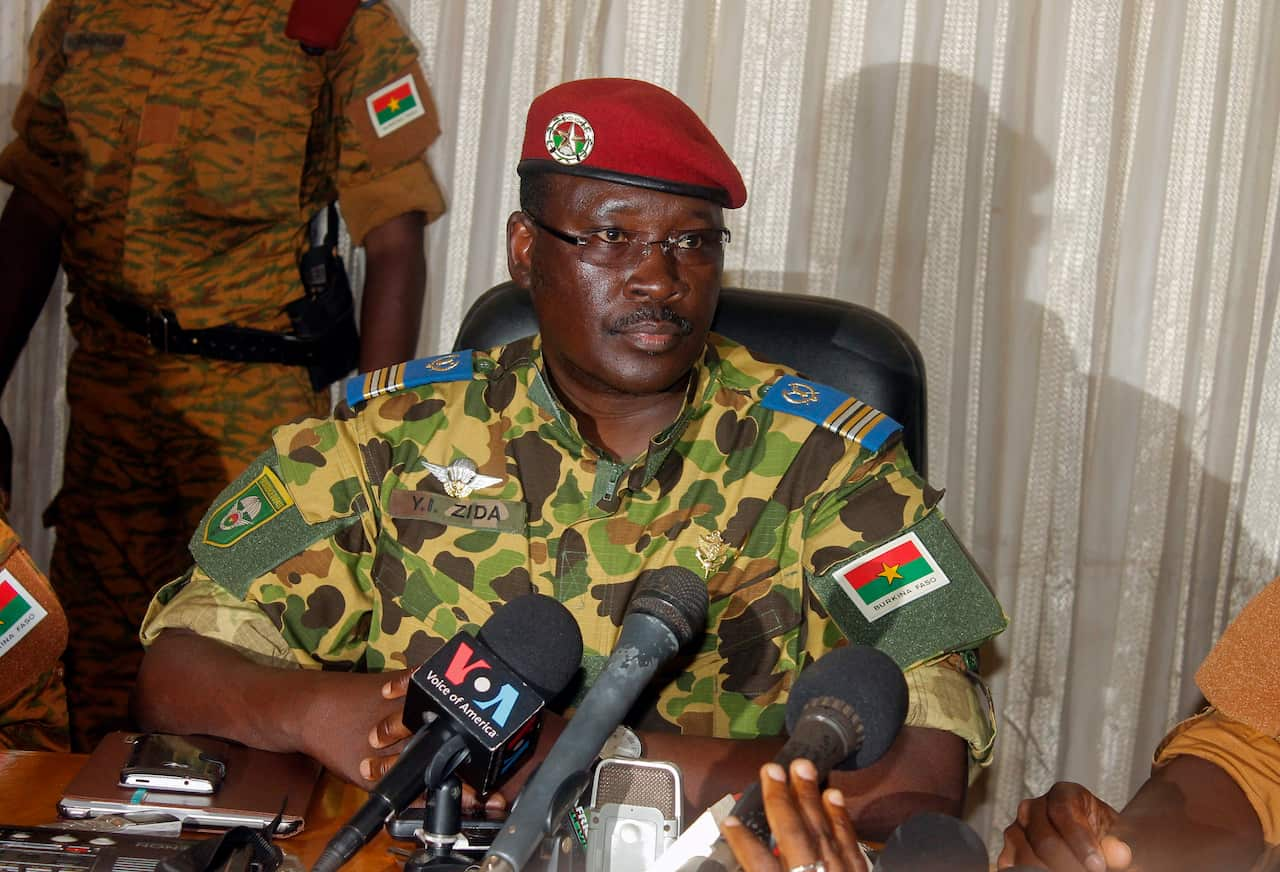Burkina Faso's opposition and civil society leaders have warned against a military takeover and called a mass rally after the army stepped into the power vacuum left by the ouster of president Blaise Compaore.
The military named a high-ranking officer, Isaac Zida, to lead the country's transition a day after Compaore was forced to resign as his plans to extend his 27-year rule exploded into violent protests that saw parliament set ablaze.
Zida, who beat out a rival claim by the landlocked west African nation's army chief to fill the post, vowed to work closely with civil society. But opposition and civil society leaders swiftly issued a statement on Saturday warning the military against a power snatch, demanding instead a "democratic and civilian transition".
But opposition and civil society leaders swiftly issued a statement on Saturday warning the military against a power snatch, demanding instead a "democratic and civilian transition".

"The victory born from this popular uprising belongs to the people, and the task of managing the transition falls by right to the people. In no case can it be confiscated by the army," they said in a statement.
They also called a new mass rally in capital Ouagadougou on Sunday at the site where up to a million people had gathered earlier this week to demand Compaore's resignation.
The civil society's call appeared to be backed by the African Union, which urged a "civilian-led and consensual transition" in the former French colony.
Zida, the second in command of the presidential guard, said he had assumed "the responsibilities of head of the transition and of head of state" to ensure a "smooth democratic transition".
The army's endorsement was signed by General Nabere Honore Traore, who initially said he would himself assume power, a claim Zida had dismissed as "obsolete".
Hours after taking over, Zida reopened the country's air space, but land borders remained closed, a statement said.
"The aspirations for democratic change" of the Burkina youth "will be neither betrayed, nor disappointed", he said.
In neighbouring Ivory Coast the presidency confirmed reports that Compaore was in the country.
In the Burkina Faso capital, calm returned to the streets, with shops reopening and calls by protest organisers for a cleanup of the debris left behind after violent mass protests.
The uprising was sparked by plans to change the constitution to allow Compaore to stand once again for elections next year.
France's President Francois Hollande vowed that Paris would "contribute to calming" the situation in Burkina Faso, while Washington urged "a transfer of power in accordance with the constitution".
Share

